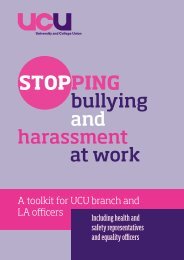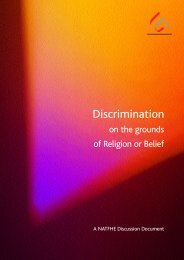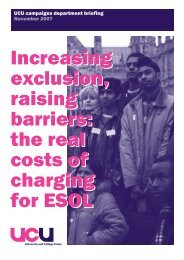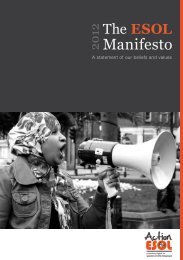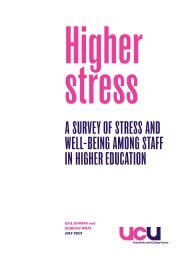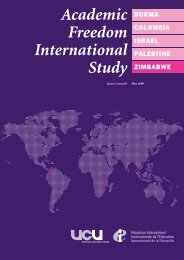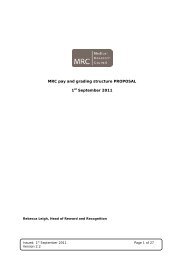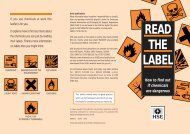GLOBALISATION AND HIGHER EDUCATION - UCU
GLOBALISATION AND HIGHER EDUCATION - UCU
GLOBALISATION AND HIGHER EDUCATION - UCU
Create successful ePaper yourself
Turn your PDF publications into a flip-book with our unique Google optimized e-Paper software.
1 INTRODUCTIONHigher education is now a major element on the international agenda. Reports from organisations such asUnited Nations Educational, Scientific & Cultural Organisation (UNESCO), the World Bank and theOrganisation for Economic Co-operation and Development (OECD) acknowledge the crucial role foreducation in economic development throughout the world. In these reports the roles for higher educationin economic development, the globalisation of the world economy, the development of a knowledge-basedsociety and the education and training of a skilled and flexible workforce are seen as crucial. Academic andacademic related staff in higher education are increasingly likely to become involved in a variety of ways ineducational activities with an international dimension whether as policy makers, advisors, members ofresearch or teaching groups or as individual practitioners.This increasing international participation has had the effect of both emphasising existing problems ofethical issues arising out of academic work and of raising new ones; there is growing concern expressed asmore examples of unethical behaviour are made public. Questions about how members of academic orrelated professions should behave in the context of international activities are being asked with increasingfrequency. This document is intended to identify some of the issues that might arise and to set them withinthe context of values shared by the Association of University Teachers (AUT) and the Development andEducation Association (DEA) in order to provide a framework within which practitioners can identify andaddress ethical questions arising out of their activities.Purpose of this bookletThere are seldom quick and straightforward answers to ethical dilemmas. This document cannot and doesnot attempt to address all the possible issues which may arise when university staff are contemplating orengaged in international work.In developing the document attention has been paid to roles university staff may be called upon to play ininternational academic activities; in particular, those arising from recruitment and teaching of and supportof overseas students and from collaboration with overseas institutions through franchising arrangementsand research which either draws on material from other countries and/or involves collaboration withcolleagues overseas. With these activities in mind, further consideration is then given to two areas where itis felt ethical issues are most likely to be presented in a university environment which is becomingincreasingly competitive and driven to secure ‘commercial’ income - human rights and environmentalsustainability. It is the premise of this document that principles underlining these two issues, while notuncontroversial, are nevertheless fundamental to a notion of academic professionalism and the idea of the‘role of service’ generally held by those concerned with the provision of higher education.Against this background the document sets out to:1. raise awareness of increasing potential for ethical dilemmas resulting from the increased role ofuniversities in a global market;2. provide both background information on areas of possible ethical concern and on sources ofinformation which can assist practitioners in determining their own ethical stance; and3. set an agenda for considered policy development for the AUT and universities to establish frameworks6 Globalisation and higher education


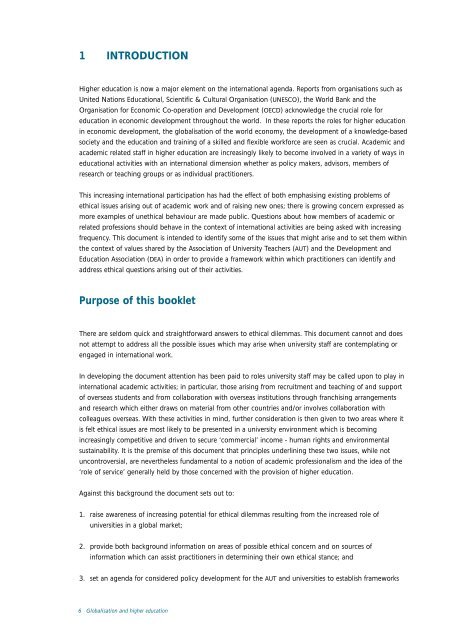
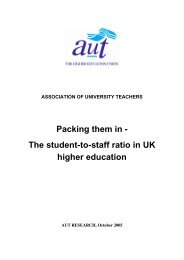
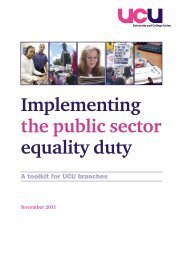
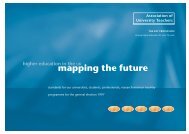
![(.pdf) [29kb] - UCU](https://img.yumpu.com/50914942/1/184x260/pdf-29kb-ucu.jpg?quality=85)
